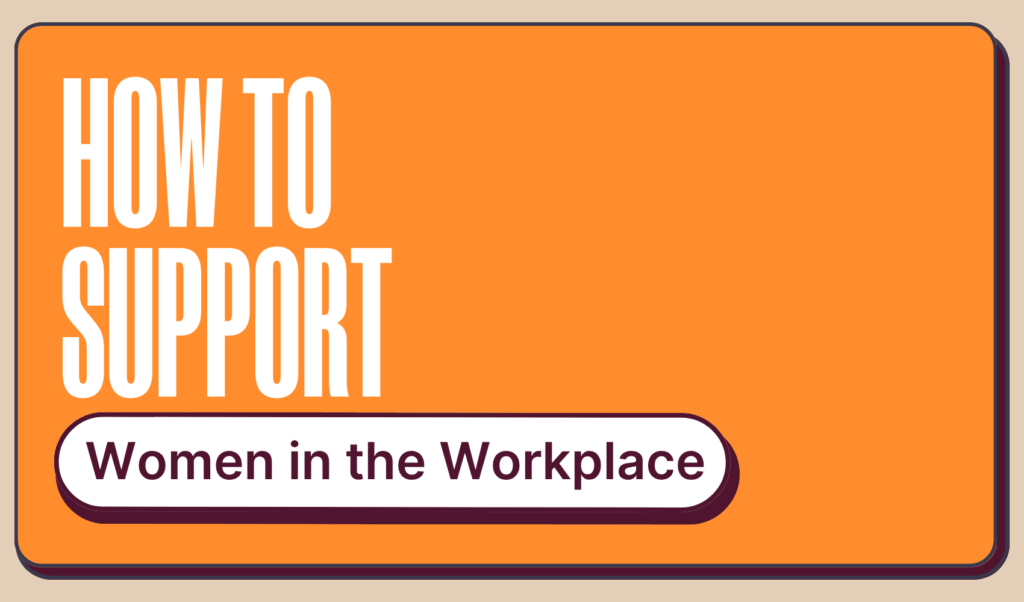
Over the past 10 years, the number of entry-level women in the workforce has increased by 3 percentage points, but progress has stalled, with the number holding at 48% since 2020. Women of color have made relatively strong gains during this period, but due to their significant underrepresentation at the start of McKinsey’s reporting, there is a long way to go until equality is truly reached. And, according to McKinsey’s data, “parity for all women is almost 50 years away.”
Companies that achieve gender parity, however, don’t just do the right thing, they outperform. Research shows that gender-diverse leadership teams are more profitable. Closing this gap is not only about fairness; it’s about fueling business success.
This emphasizes the need for nonprofits like Rewriting the Code, but also for companies to do more. Companies have the power and responsibility to accelerate progress.
With your help, we can accelerate the path to true parity for all women.
Challenges Women Face in Today’s Workplace
Companies are increasingly de-prioritizing gender and racial equality. According to the Women in the Workplace 2024 report, since 2017, the number of organizations that are highly committed to gender and racial equality has gone down by 10 percentage points.
And, within that time, women’s experiences have not gotten better. According to the report:
- Young women are more likely to say their age has affected their career and are two times more likely to get unwanted comments about their age.
- Women of color are less likely to get support from their managers.
- Women are more likely to have their confidence undermined in the workplace.
- Women are more likely to face othering microaggressions.
While dealing with all of that (and more — these were just the tip of the iceberg), 1 in 3 women with partners are shouldered with all or most of the housework. And this is across all generations.
Strategies for Supporting Women in the Workplace
So what can you, either as an individual or organization, do to support women in the workplace — and strengthen your organization’s retention, innovation, and bottom line?
A meaningful first step includes being involved with organizations that support women. RTC is one of the largest communities of women in tech, with 37,000+ members. We partner with organizations committed to closing the gender gap, not just through recruiting, but through meaningful engagement. From CSR opportunities like mentoring and volunteering to data-driven insights into what women in tech want, we help you build lasting, authentic relationships with top talent.
Other ways that organizations can help are by creating flexible working arrangements. Remote work is favored by women and, more specifically, by mothers with young children. If remote work is out of the question, provide childcare support. Families spend between 8.9% and 16% of their median income on just one child — imagine if they have more than one?
But, supporting women isn’t just about hiring women. It’s about creating a structure where women can thrive and lead. Practical steps include:
- Transparent promotion criteria: increasing trust and advancement of talent
- Bias training for managers: reducing attrition caused by exclusionary practices
- Equitable pay audits: improving engagement and long-term loyalty
And lastly, build an inclusive work culture. Make sure to have employee resource groups (noted as something that RTC members look for during the recruitment process), safe feedback channels, and inclusive decision-making — which prove to drive connection and strength team performance.
For individuals who want to make a difference, volunteer at organizations (like Rewriting the Code) as a mentor, or if you don’t have time, donate! Make sure that the team you’re on or that you lead is a safe, inclusive space. You can do this by taking part in an anti-bias training program, but also just reading books that elevate women, and in particular, women of color’, voices. There are many books out there that talk about this.
What Women Want from Their Companies
As a global community of women, we have unique access to women in tech to ask them, what do you want from your company or the recruitment process?
And so we did exactly that in our 2024 Recruiting Experience Survey.
For women in the thick of the recruiting process, there were four clear winners about what they want from organizations:
- Recruiting for more representative talent pools: this includes attending women-focused accessible events such as RTC’s Virtual Career Summit.
- Specific/Explicit mention of ERGs and opportunities for women: members want to hear specifically how you support women.
- Better representation of women in the company/interaction with women beyond interviews: just hearing about other women’s experience, outside of the official recruiters and interviewers, enlightens members about the women who actually work for your organization.
- Increase interviewer representation: Women shared that being interviewed exclusively by men sends the wrong signal about an organization’s priorities.
Women actively working in tech want:
- More opportunities to network and see women working at higher levels of the organization
- ERGs and mentorship programs
- Flexible working environments
- Events at the organization for women to mingle and bond.
And the biggest and most common mention was respect. They want to be heard, seen, and respected. This means taking young women seriously, listening instead of speaking over them, and recognizing their skills and expertise. Respect isn’t just cultural — employees who feel respected are more engaged and more likely to stay.
Unchecked, these challenges translate into higher turnover and reduced engagement, two of the most expensive business risks.
A Call to Action
The first step toward change is listening to women in your workplace. Sit down with women (even if you are one!) and ask them what they’ve experienced. Cultivate an open and honest conversation.
Then, take the next step.
By investing in more representative talent pools, you’re not just supporting women — you’re building stronger teams, increasing profitability, and future-proofing your organization. When women thrive, companies thrive. Let’s talk.